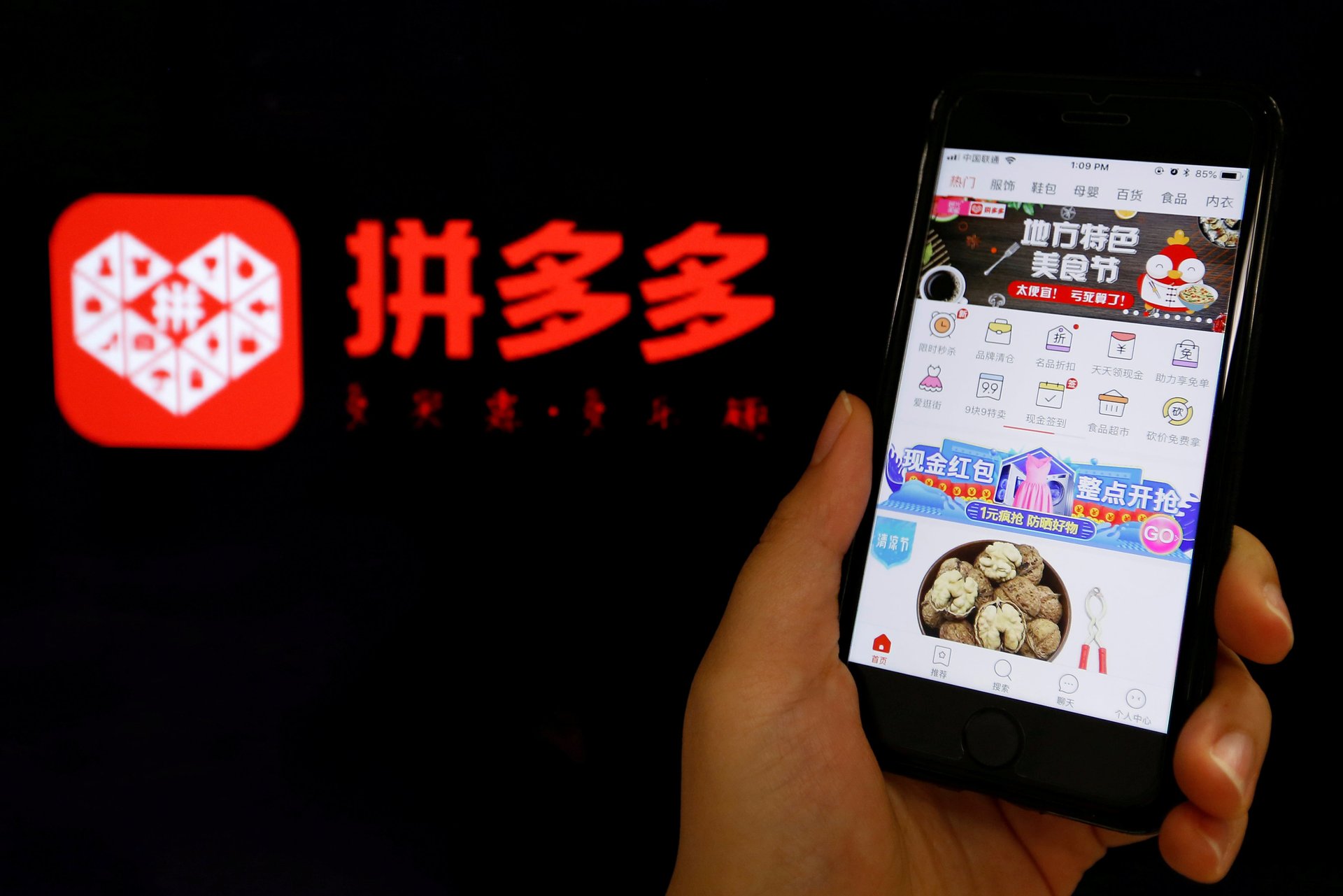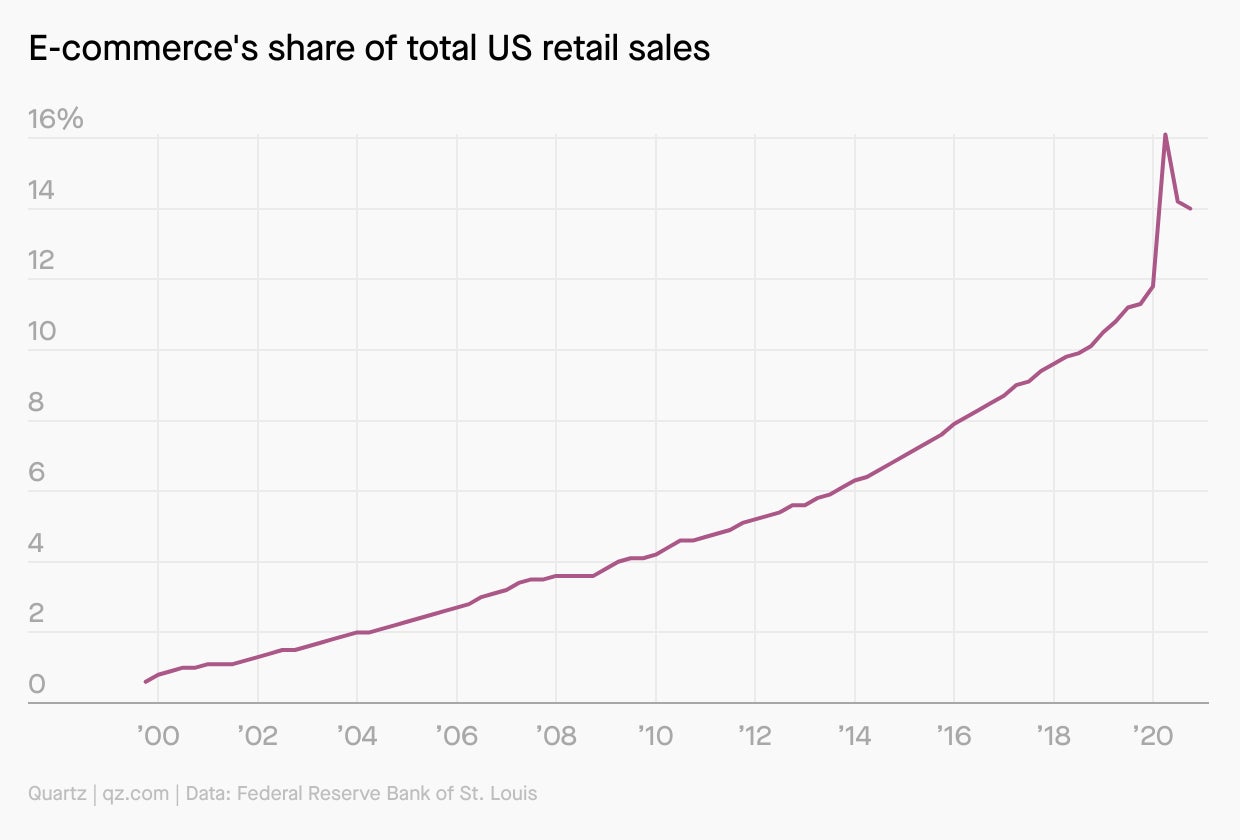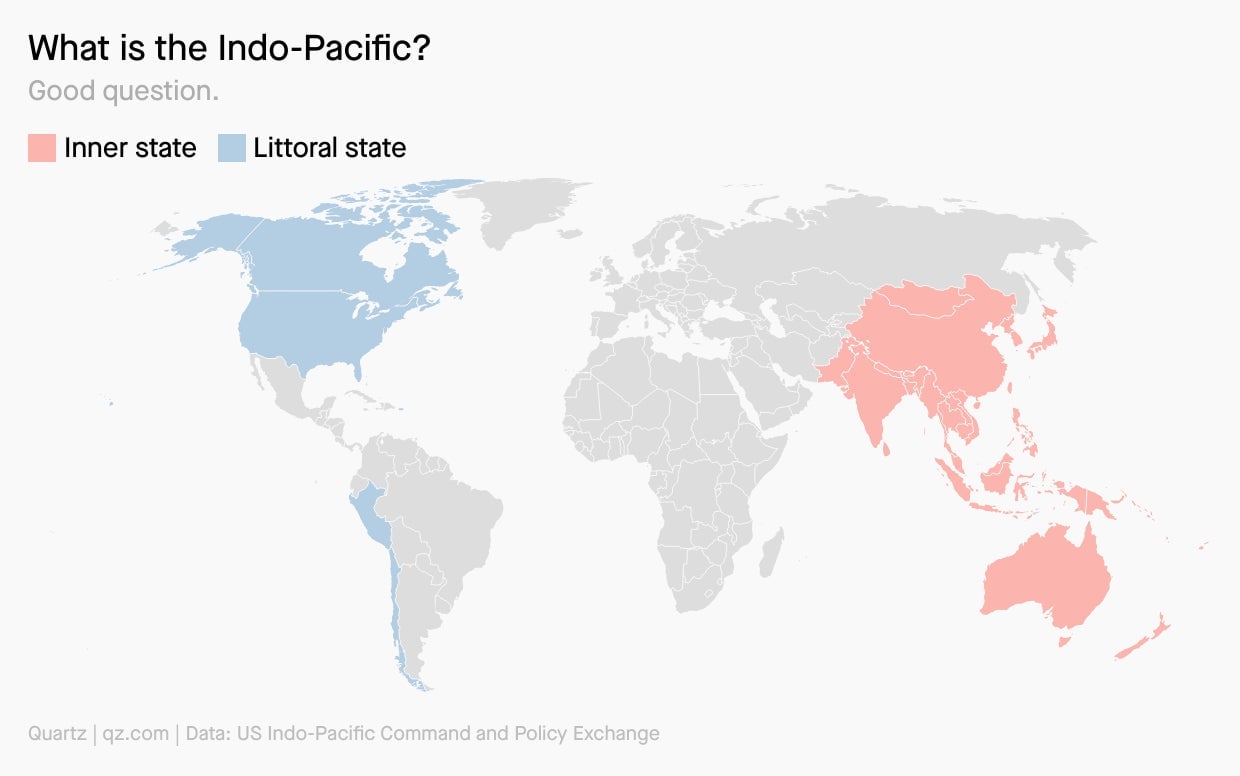Pinduoduo’s highs and lows, US-China talks, AI hearing aids
Good morning, Quartz readers!


Good morning, Quartz readers!
Here’s what you need to know
A bittersweet day for Pinduoduo. The company became China’s largest e-commerce company on the same day its founder stepped down, as governmental scrutiny into the industry increases.
The Tokyo Olympics creative chief stepped down. Hiroshi Sasaki had discussed having plus-size fashion star Naomi Watanabe dress up as the “Olympig” for the opening ceremonies.
The US punished Chinese officials ahead of talks with Beijing. Putting sanctions on 24 individuals accused of eroding democracy in Hong Kong is sure to set an icy tone ahead of talks in Alaska (read more below).
Canada expanded AstraZeneca vaccine use. As other countries retreated from the controversial vaccine, a Canadian expert advisory panel included seniors in its rollout.
A court ruled Japan’s same sex marriage ban unconstitutional. According to the Sapporo District Court, the ban violates Article 14 of the Japanese constitution.
The US Federal Reserve will keep interest rates near zero. The agency will also continue to purchase $120 billion worth of treasury and mortgage assets each month.
More details on the Atlanta shooting. 21-year-old Robert Aaron Long blamed his sexual addiction for his killing spree that claimed eight lives.
Quartz is selling the first-ever NFT news article. A winning bid will earn you quality news, metadata, and a piece of history.
What to watch for
The US and China have their first high-level in-person talks since Joe Biden took office. Later today in Anchorage, Alaska, US secretary of state Anthony Blinken and National Security Advisor Jack Sullivan will sit down with China’s foreign minister Wang Yi, and top diplomat Yang Jiechi to take the temperature of a relationship that became a bitterly hostile rivalry during Donald Trump’s presidency.
The meeting comes after Blinken made his first overseas visits, to Japan, where he warned China against “aggression and coercion,” and to South Korea, both traditional US allies in Asia. In the days leading up to the talks, the US also sanctioned more Chinese officials over Beijing’s crackdown in Hong Kong, while Blinken criticized the country’s “strings attached” vaccine diplomacy. For China’s part, Wang, speaking this month at a press conference, declared it would not accept “groundless accusations or defamation” from the US.
In other words, a substantial “reset” in US-China ties is unlikely, especially with China’s abuses of its Uyghur minority in Xinjiang and cybersecurity on the agenda. But for the next four years, the rivalry is likely to be conducted on more polite terms than in the last four.
Even a change in tone will be welcome. It may not do a whole lot to improve US-China ties, but Biden’s pull back from Trump’s xenophobic and often racist way of talking about China might do something to repair a climate that, with the arrival of the pandemic, has seen an uptick in acts targeting Asians. Tuesday’s shooting spree in which a man shot to death at least eight people at spas in Atlanta, Georgia, the majority of them Asian women, may have been one of them.
Charting the e-commerce industry
E-commerce in the US is approaching a major milestone: In 2022, it will record its first trillion-dollar year, predicts Adobe Analytics, which analyzes online transactions across millions of products.

The pandemic is speeding US online sales to new heights far faster than they would have moved otherwise. While some of that activity is likely to return to stores once life gets back to normal, experts expect many of the new behaviors shoppers picked up out of necessity will stick around. Retailers will have to adapt.
Pop quiz: What’s the geopolitical buzzword of the moment?
Here’s a hint: it’s a region that most people probably can’t identify on a map, but that European leaders think is the center of gravity of the world.
OK fine it’s “Indo-Pacific,” and really it’s more of a political construct than a geographic one.

It’s a rich and diverse place that contains, according to the US Indo-Pacific Command, “more than 50% of the world’s population, 3,000 different languages, several of the world’s largest militaries…two of the three largest economies…the most populous nation in the world, the largest democracy, and the largest Muslim-majority nation.” It’s also the heart of global trade. Annabelle Timsit takes us on a journey to determine why everyone’s got their eye on the region.
✦ Let Quartz help you plot a course for the future of global business. Try out a membership for a week, free.
Surprising discoveries
Hearing aids are turning to AI. New products will utilize deep neural networks to isolate sound to eliminate background noise.
Spam FaceTimes are the new terrible thing… Users are being bombarded with as many as 20 video calls in short succession at all hours of the day and night.
… but a hacker rerouting all your texts is still pretty bad. And it can happen for less than $20.
The oldest new car in America was sold… The 2014 Lotus Evora S had been sitting since 2014, and sold for $20,000 under sticker price with an expired warranty.
…which actually isn’t very old at all. Israeli archaeologists discovered a 6,000-year-old basket and a few Dead Sea Scroll fragments in the Judean desert.
Our best wishes for a productive day. Please send any news, comments, new-old cars, and old-old baskets to [email protected]. Get the most out of Quartz by downloading our iOS app and becoming a member. Today’s Daily Brief was brought to you by Marc Bain, Annabelle Timsit, Tripti Lahiri, Jordan Lebeau, and Susan Howson.